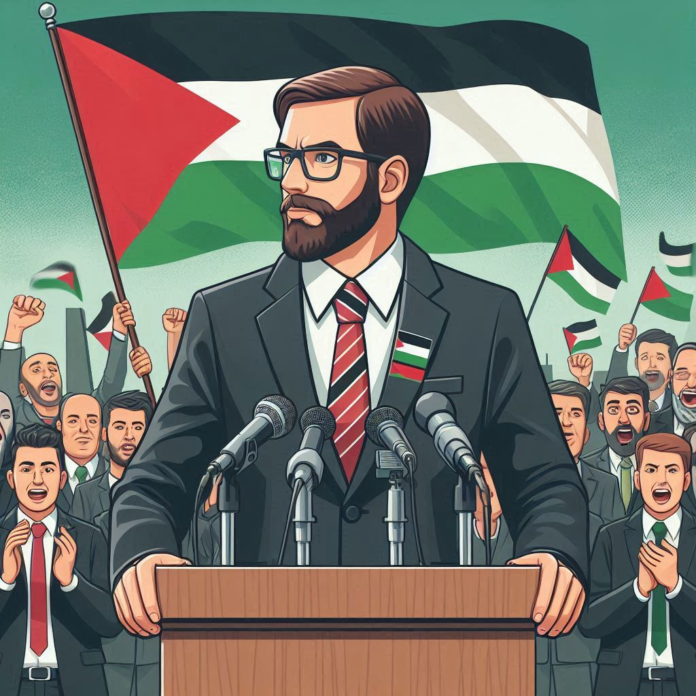Ismail Haniyeh, the Hamas Political Boss
Ismail Haniyeh is a political personality that plays an influential role at the Palestinian political scene and is one of the leaders of Hamas an organization listed as a terrorist organization in the United States, Israel, and the European Union. His life, marked by defiance, struggle, and political leadership, reflects the broader complexities and challenges of the Israeli-Palestinian conflict.

Early Life and Background of Ismail Haniyeh
H.Ismael abdel salam ahmed haniyeh was born on 29-01-1962 in al-shati refugee camp in the gaza strip. His family originally hailed from the town of Al-Majdal (now Ashkelon in Israel), but they were displaced during the 1948 Arab-Israeli War, an event known to Palestinians as the Nakba, or “catastrophe.” Growing up in a refugee camp, Ismail Haniyeh experienced firsthand the hardships and struggles that would shape his political outlook.
Ismail Haniyeh attended the Islamic university of Gaza engaging in students politics during his time there. It was during his time at university that he joined Hamas, an Islamist Palestinian organization founded in 1987 during the First Intifada (Palestinian uprising). The organization was an offshoot of the Muslim Brotherhood, advocating for the establishment of an Islamic state in historic Palestine through resistance against Israeli occupation.
Rise Within Hamas
Ismail Haniyeh’s rise within Hamas was steady and significant. He became a close associate of Sheikh Ahmed Yassin, the spiritual leader and co-founder of Hamas, and was involved in various capacities within the organization’s political and social wings. Hamas was not only a militant organization but also a social movement providing welfare services, which helped it garner substantial support among Palestinians.
Ismail Haniyeh’s leadership qualities and loyalty to the movement earned him a prominent role, and he was appointed as the dean of the Islamic University of Gaza in the late 1980s. However, his involvement in Hamas also made him a target for the Israeli authorities, leading to his arrest and imprisonment on multiple occasions.
In 1992, following a wave of attacks, Israel deported Ismail Haniyeh along with hundreds of other Hamas activists to southern Lebanon. This event further radicalized his views and solidified his commitment to the cause of resistance against Israel. The deportation, however, also helped to raise his profile within Hamas.
Political Leadership and the 2006 Palestinian Elections
The early 2000s marked a turning point for Hamas and for Ismail Haniyeh personally. The Second Intifada, which began in 2000, saw increased violence between Palestinians and Israelis, and Hamas played a central role in the armed resistance. However, the death of Yasser Arafat in 2004 and the subsequent power struggles within the Palestinian Authority (PA) opened the door for Hamas to participate in formal politics.
In 2005, following the death of Yassin in an Israeli airstrike, Ismail Haniyeh was appointed the head of Hamas’ political bureau in Gaza. This position placed him at the forefront of the organization’s political strategy.
Ismail Haniyeh’s leadership was pivotal in the 2006 Palestinian legislative elections, where Hamas decided to run under the “Change and Reform” party. The elections were a watershed moment in Palestinian politics, as Hamas won a surprising and resounding victory, securing 74 of the 132 seats in the Palestinian Legislative Council (PLC). This victory was a clear rejection of the Fatah-led Palestinian Authority’s perceived corruption and inefficacy.
Following the elections, Ismail Haniyeh was appointed Prime Minister of the Palestinian Authority, a position that brought him into direct conflict with both Israel and the international community. Most Western countries and Israel refused to recognize the Hamas-led government due to the organization’s refusal to renounce violence, recognize Israel’s right to exist, and abide by previous agreements between the PA and Israel.
The Gaza Conflict and Internal Palestinian Strife
The period following Hamas’ election victory was marked by intense conflict both within Palestinian society and with Israel. The power struggle between Hamas and Fatah, led by Mahmoud Abbas, escalated into violent clashes. In 2007, after months of tension and sporadic fighting, Hamas took control of the Gaza Strip following a brief but bloody civil conflict with Fatah forces. This effectively split the Palestinian territories into two separate entities: Hamas-controlled Gaza and the Fatah-controlled West Bank.
As the de facto leader of Gaza, Ismail Haniyeh faced the immense challenge of governing a territory under severe economic blockade by Israel and Egypt, as well as facing international isolation. The blockade has had devastating effects on Gaza’s economy and its population, leading to widespread poverty and unemployment.
Despite these challenges, Ismail Haniyeh maintained his leadership role, continuing to advocate for resistance against Israel. His tenure in Gaza has been marked by several military confrontations with Israel, including significant conflicts in 2008-2009 (Operation Cast Lead), 2012 (Operation Pillar of Defense), 2014 (Operation Protective Edge), and more recently in 2021. These conflicts have resulted in significant loss of life and destruction in Gaza, with Haniyeh and Hamas remaining defiant despite the heavy toll on the civilian population.
Leadership Style and Ideology
Ismail Haniyeh is often portrayed as a pragmatic leader within Hamas, balancing the movement’s ideological commitment to armed resistance with the political realities of governance. While Hamas is committed to the destruction of Israel and the establishment of an Islamic state in all of historic Palestine, Ismail Haniyeh has occasionally shown willingness to engage in ceasefires and truces with Israel, albeit without making significant ideological concessions.
Ismail Haniyeh’s leadership style is characterized by his ability to navigate the complex and often contradictory demands of leading a militant organization that also functions as a government. He has maintained close ties with other Islamist movements and governments, particularly with Iran, which has provided Hamas with financial and military support. At the same time, Haniyeh has sought to build relationships with Sunni Arab states, although these efforts have been complicated by the broader geopolitical rivalries in the region, especially the Sunni-Shia divide.
Ismail Haniyeh’s ideological outlook is deeply rooted in the principles of political Islam, and he often frames the Palestinian struggle in religious terms. This ideological stance has resonated with many Palestinians, particularly in Gaza, who view the conflict with Israel not just as a nationalist struggle but as part of a broader Islamic resistance against Western imperialism and Zionism.
International and Regional Impact
Ismail Haniyeh’s leadership of Hamas has had significant implications beyond the borders of Gaza. The organization’s stance and actions have influenced regional geopolitics, particularly in relation to the Israel-Palestine conflict.
Hamas’ control of Gaza has been a major factor in the ongoing division within the Palestinian national movement, complicating efforts to achieve Palestinian unity and weakening the overall Palestinian position in negotiations with Israel. The split between Hamas and Fatah has led to two competing governments in the Palestinian territories, making it difficult to present a unified front in peace talks or international diplomacy.
Ismail Haniyeh’s leadership has also affected Hamas’ relationships with other countries in the region. For instance, while Hamas has historically enjoyed strong support from Iran, the Syrian civil war created tensions as Hamas distanced itself from the Assad regime due to its brutal crackdown on Sunni rebels. This decision strained relations with Iran and Hezbollah, though ties have since been partially restored.
The shifting alliances in the Middle East, particularly the growing rapprochement between Israel and several Arab states through the Abraham Accords, have further isolated Hamas. Despite these challenges, Ismail Haniyeh has continued to navigate the complex web of regional politics, seeking support from countries like Qatar and Turkey, which have provided financial aid and political backing to Hamas.
Challenges and Criticisms
Ismail Haniyeh’s leadership has not been without controversy and criticism, both from outside and within the Palestinian territories. The most significant criticism comes from the heavy toll of the ongoing conflict with Israel on the civilian population in Gaza. Repeated military confrontations have led to widespread destruction, loss of life, and a humanitarian crisis in Gaza, with critics arguing that Hamas’ refusal to recognize Israel and its commitment all the activities that lead to armed struggle have only contributed to increasing the suffering of the Palestinian people.
Domestically, Ismail Haniyeh and Hamas have received much blame for the running of Gaza. Accusations of authoritarianism, corruption, and human rights abuses have been levied against Hamas, particularly in their suppression of dissent and the use of violence against political rivals. The economic situation in Gaza has also deteriorated under Hamas’ rule, with the blockade and frequent conflicts contributing to severe economic hardships for the population.
Moreover, Ismail Haniyeh’s balancing act between governance and resistance has led to tensions within Hamas itself. The movement is divided between its political leadership, which Ismail Haniyeh represents, and its military wing, the Izz ad-Din al-Qassam Brigades, which sometimes takes a harder line on issues related to Israel and resistance.
Personal Life of Ismail Haniyeh
Despite his prominent political role, Ismail Haniyeh is known for his relatively modest lifestyle, especially in comparison to other political leaders in the region. He has lived in Gaza throughout most of his life, even after becoming Prime Minister and later the leader of Hamas. Haniyeh is married and has 13 children, and his family life is often cited by supporters as an example of his connection to the everyday struggles of the Palestinian people.
In recent years, Haniyeh has spent more time outside Gaza, particularly in Qatar, where he has been able to engage in international diplomacy and secure financial support for Hamas. His time abroad has also been strategic, allowing him to navigate the internal politics of Hamas and the broader Palestinian movement.
Legacy and Future Prospects
Ismail Haniyeh’s legacy is deeply intertwined with the broader history of Hamas and the Israeli-Palestinian conflict. His life’s work has been dedicated to the Palestinian cause, particularly through the lens of Islamic resistance against Israeli occupation. Under his leadership, Hamas has remained a formidable force in Palestinian politics, despite facing significant challenges from Israel, the international community, and internal divisions.
Haniyeh’s future prospects are closely linked to the evolving dynamics of the Middle East and the Israeli-Palestinian conflict. The ongoing tensions between Hamas and Israel, the shifting alliances in the region, and the internal struggles within the Palestinian territories will continue to shape his role and influence.
Whether Haniyeh is ultimately remembered as a steadfast leader of resistance or as a controversial figure whose policies contributed to the suffering of his people will depend on one’s perspective on the complex and deeply contentious Israeli-Palestinian conflict. What is certain, however, is that Ismail Haniyeh has played a central role in one of the most enduring and intractable conflicts of the modern era. His life and leadership offer insight into the challenges, dilemmas, and tragedies that define the struggle for Palestinian self-determination and the broader geopolitical landscape of the Middle East.



